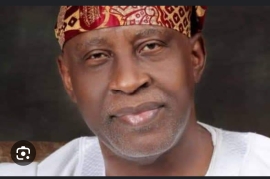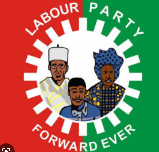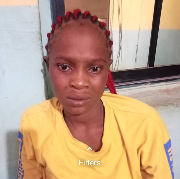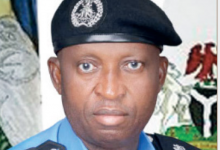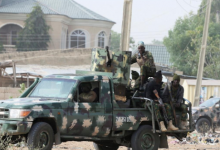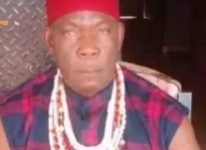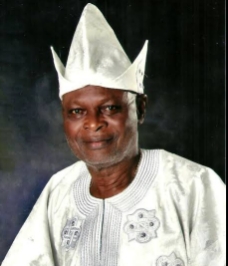
…I was among the best four
By Bose Adelaja
CITIZENS COMPASS – Developments in Igbogbo Kingdom, Ikorodu Division in Lagos State are incomplete without the mention of Pa Reuben Olorunfunmi Basorun, who despite his humble background devoted time and resources to ensure growth in his father’s land.
Among the political sons and daughters produced in Igbogbo, he is one of the few who is confidently living among his people, not only this, his gates are open to receive people regardless of their tribe, race or creed.
Without mincing words, Pa Basorun is a Golden fish as far as Nigeria is concerned as his vast achievement speaks volume. For instance, he played a key role in ensuring that the access road connecting the community with Ikorodu town received government attention.
Unlike some politicians, Pa Basorun had always easily identifies with his people come rain, come shine, as shown by the fact that he lives in the community with his immediate family and owned a production factory where many youths in the land earned their living although the factory later became a victim of the harsh economic situation in Nigeria.
This is in sharp contrast with the conduct of typical Nigerian politicians/rich men, who after using the people, exploiting and extorting their potentials and thereafter abandon their community, making themselves unavailable and unapproachable by living in far-away posh places like Banana Island, Victoria Garden City (VGC), Lekki, Abuja and other high brow areas.
Baba lives among his people and interacts with them on a daily basis.
He is multifaceted; A staunch advocate of human rights, Pa Basorun had successfully led some Nigerian workers, particularly from the Central Bank of Nigeria (CBN) during several peaceful protests.
Pa Basorun is a lawyer, banker and the Second Republic Secretary to the Lagos State Government (SSG).
In the religious circle, he founded a branch of Cherubim and Seraphim (C&S) Church in the comfort of his home.
Born on Saturday, October 15, 1938 to Albert Adewamiwa OGUNMUYIWA , whose father was Adepari PARAMOLE , who co-founded Agunfoye Gegenla in those days, his mother was Abigail Bosede Olowu from Igbogbo Kingdom while grandfather was Aina Olowu, who was the head of a division of Igbogbo in his days.
Citizens Compass visited the patriarch in his abode where he shared his larger-than-life story. Enjoy…
Growing up
I grew up in Igbogbo and was six years old when my father passed on in November 1944. I had been enrolled in Methodist Primary School in 1944 because my grandmother was the Iya Ijo (Mother of the Church) of the Church since 1894 when the church was brought to Igbogbo.
Sequel to the death of my father, my mother was betrothed to my step father, a close relation whose name was Yusuf Adeniji Basorun, who decided to add Basorun to my name. Though my grandmother objected to this, he insisted that since he was going to look after me, I must bear his name. With this, he relocated me to Agege to start primary education afresh in Agege District Central School in 1946.
I skipped primary 1A and B because there were indications that I was already schooling and I was in that school till I advanced to Standard 1 in 1948.
On September 1, 1948, I relocated to Igbogbo to be re-admitted to Methodist Primary School.
I moved from standard 1 to standard 2 in 1949, before the school was relocated to its present location, along Oba Omolaja Ogunlewe Road.
That time, the primary school only had up to Standard 2 and anybody who wanted to study beyond this must move to Ikorodu, which I did and was promoted to Standard 3. I continued my studies till standard 5 in 1952 when the school was relocated to a new site at Etunrenren.
Another relocation
Again, there was a relocation through some circumstances because I was alone while my mother and stepfather were in Lagos, so they requested that I joined them. Therefore, I relocated to Lagos in 1953, to Apapa Road, Ebute-Meta to enroll at Tinubu Methodists School, where I sat for Standard Six examination and moved to Eko Boys High School, Mushin in 1954.
In those days, school certificate used to be six years but it was reduced to five years when I got there. I sat for the West Africa School Certificate Examination (WAEC) in November 1958 and secured employment on January 5, 1959 as a clerk in the Central Bank of Nigeria (CBN) where I was Employee number 44 with Pension number 214.
How I was employed
Officials of CBN came to our school to offer employment. The Bank offered employment to students who came out with a minimum of Grade 2 with Credit in English Language and Mathematics and I was among the first four that were privileged to secure the job. Those who did not make it were rejected because schools were very strict in those days.
Career path
I remained at the foremost bank and tried to progress educationally. So, in 1967, I completed my banking examination and was appointed an Associate Member of Chartered Institute of Bankers, in 1968, I completed my course in Chartered Secretaryship and was appointed as an Associate of Chartered Institute of Secretaries, same year, I gained admission into the University of Lagos (UNILAG) to study Business Administration, on a part-time basis. I graduated in 1974/75 Academic Year. Within this period, I spent two years outside the university to serve CBN in Maiduguri.
I was the Currency Officer when the Nigerian currency was being launched in 1973 in Maiduguri, which was the capital of North Eastern states (the six states that make the North-east geo-political zone). Thus, I graduated on January 17, 1976.
While at the CBN, I had transfers and experiences here and there, some of which space and time may not permit.
Outbreak of War
The first branch of CBN was opened in 1962 in Kano State and I was one of the officers who were sent there. After the 1966 military coup, I was sent to the Jos Central to take over as the Currency Officer, where I remained until 1967 when the unfortunate Nigerian civil war, popularly called the Biafra War broke out and I returned to Lagos.
Industrial Strikes
In 1969, I led two industrial unrests which objective was to make CBN upgrade our salaries to be above the salaries of those in commercial banks we were superintending over but were earning more than us, so, I led the strikes in September and October and when they were called off because…
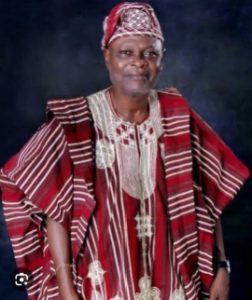
Watch out for part 2 of this interview.

